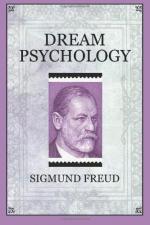I should then expect to find the theoretical value of the study of dreams in its contribution to psychological knowledge and in its preparation for an understanding of neuroses. Who can foresee the importance of a thorough knowledge of the structure and activities of the psychic apparatus when even our present state of knowledge produces a happy therapeutic influence in the curable forms of the psychoneuroses? What about the practical value of such study some one may ask, for psychic knowledge and for the discovering of the secret peculiarities of individual character? Have not the unconscious feelings revealed by the dream the value of real forces in the psychic life? Should we take lightly the ethical significance of the suppressed wishes which, as they now create dreams, may some day create other things?
I do not feel justified in answering these questions. I have not thought further upon this side of the dream problem. I believe, however, that at all events the Roman Emperor was in the wrong who ordered one of his subjects executed because the latter dreamt that he had killed the Emperor. He should first have endeavored to discover the significance of the dream; most probably it was not what it seemed to be. And even if a dream of different content had the significance of this offense against majesty, it would still have been in place to remember the words of Plato, that the virtuous man contents himself with dreaming that which the wicked man does in actual life. I am therefore of the opinion that it is best to accord freedom to dreams. Whether any reality is to be attributed to the unconscious wishes, and in what sense, I am not prepared to say offhand. Reality must naturally be denied to all transition—and intermediate thoughts. If we had before us the unconscious wishes, brought to their last and truest expression, we should still do well to remember that more than one single form of existence must be ascribed to the psychic reality. Action and the conscious expression of thought mostly suffice for the practical need of judging a man’s character. Action, above all, merits to be placed in the first rank; for many of the impulses penetrating consciousness are neutralized by real forces of the psychic life before they are converted into action; indeed, the reason why they frequently do not encounter any psychic obstacle on their way is because the unconscious is certain of their meeting with resistances later. In any case it is instructive to become familiar with the much raked-up soil from which our virtues proudly arise. For the complication of human character moving dynamically in all directions very rarely accommodates itself to adjustment through a simple alternative, as our antiquated moral philosophy would have it.




